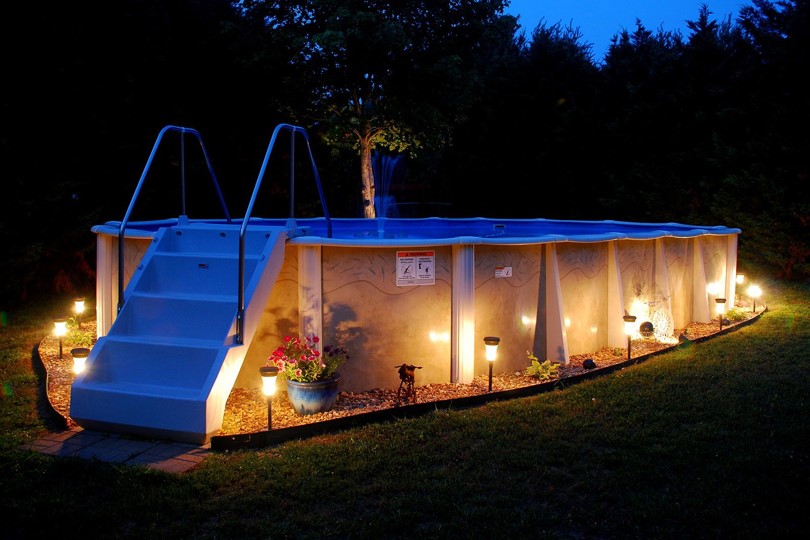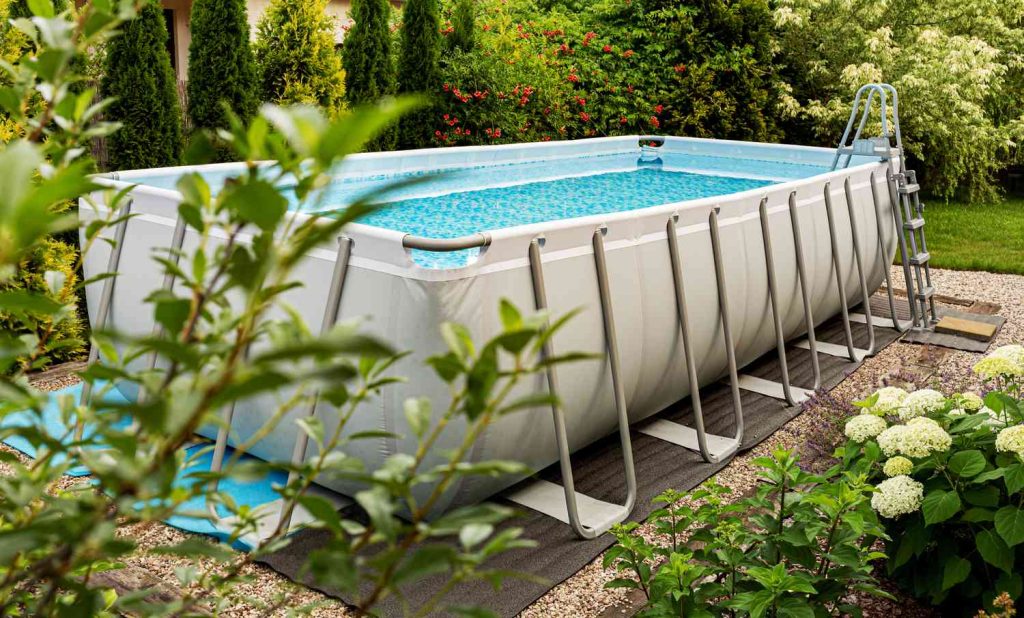Having a swimming pool in your backyard is a dream come true for many homeowners. However, for those who live in colder climates, enjoying your pool throughout the year may not be possible due to the chilly water temperatures. That’s where pool heating comes in. In this article, we will explore several methods to efficiently heat an above ground pool, allowing you to extend your swimming season and make the most of your pool investment.

Credit: www.swimmingpool.com
1. Solar Pool Heating
Solar pool heating is an eco-friendly and cost-effective way to heat your above ground pool. By harnessing the energy of the sun, you can gradually increase the water temperature. Solar heating systems consist of solar panels installed on your roof or ground, which capture sunlight and transfer the heat to the pool water through a pump.
Advantages:
- Environmentally friendly, as it relies on renewable energy.
- Long-term cost savings, as solar energy is free once the system is installed.
- Minimal maintenance required, as most systems are self-sufficient.
Disadvantages:
- Dependent on sunlight availability, making it less effective during cloudy or rainy days.
- Requires an initial investment for the installation of solar panels.

Credit: heatpumps4pools.com
2. Heat Pumps
Heat pumps are another popular choice for heating above ground pools. They work by extracting heat from the air and transferring it to the pool water through a refrigeration cycle. Heat pumps are best suited for regions with moderate climates, as they rely on air temperature rather than direct sunlight.
Advantages:
- Energy-efficient, as they consume less electricity compared to electrical resistance heaters.
- Can operate in various weather conditions, making them suitable for year-round pool heating.
- Long lifespan, typically lasting 10-20 years with proper maintenance.
Disadvantages:
- Higher upfront cost compared to electrical resistance heaters.
- Slower heating process compared to gas heaters.
3. Gas Heaters
Gas heaters are the most traditional and powerful way to heat your above ground pool. They use natural gas or propane to quickly heat the water, making them ideal for heating large pools or when you want to raise the water temperature rapidly.
Advantages:
- Rapidly heats the water, allowing for quick temperature adjustment.
- Effective in all weather conditions, as it is not dependent on sunlight.
- Can maintain desired temperature regardless of pool size.
Disadvantages:
- Higher operating costs due to the consumption of natural gas or propane.
- Requires regular maintenance and occasional repairs.
- Not as energy-efficient as solar or heat pumps.
4. Electric Resistance Heaters
Electric resistance heaters use electric currents to generate heat and warm up the pool water. They are relatively easy to install and can be operated at any temperature.
Advantages:
- Reliable and consistent heating performance.
- Compatible with all pool sizes and types.
- Lower upfront cost compared to gas heaters.
Disadvantages:
- Higher operating costs due to electricity consumption.
- Slower heating process compared to gas heaters.
- May require a dedicated electrical circuit for proper operation.
5. Pool Cover
Lastly, one simple and cost-effective method to help retain heat in your above ground pool is by using a pool cover. A pool cover helps to minimize heat loss through evaporation and keeps the water warm for longer periods, especially during the night when temperatures drop.
Advantages:
- Prevents heat loss through evaporation, reducing the need for constant heating.
- Acts as a barrier against debris and leaves, keeping the pool clean.
- Affordable and easy to use.
Disadvantages:
- Does not actively heat the water, but rather helps retain existing heat.
- Requires manual effort to cover and uncover the pool.
By considering the various heating options mentioned above, you can select the most suitable method to keep your above ground pool warm. Whether you opt for solar pool heating, heat pumps, gas heaters, electric resistance heaters, or a combination of methods, extending your swimming season is now within reach. Enjoy the comfort and relaxation of a heated pool year-round, even in colder climates!





